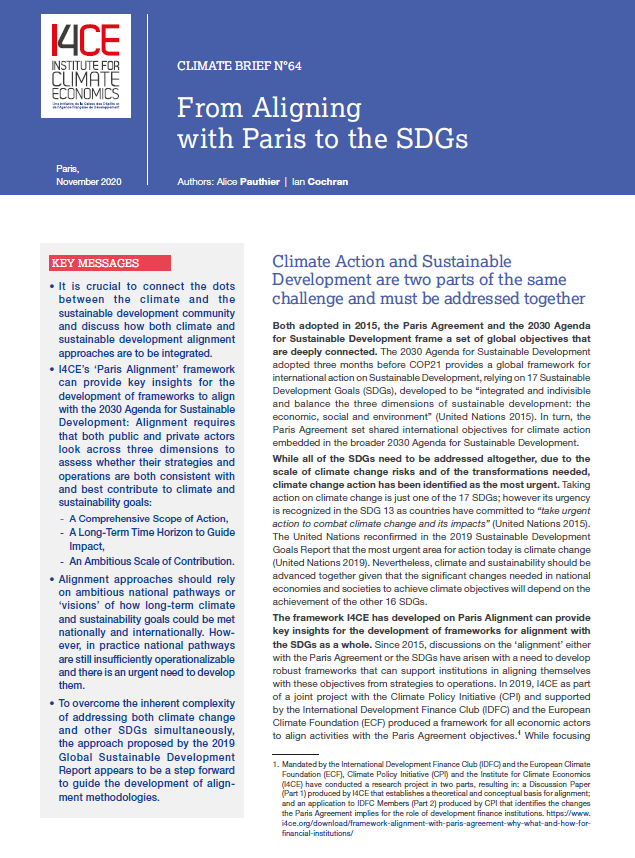From Aligning with Paris to the SDGs
Climate Action and Sustainable Development are two parts of the same challenge and must be addressed together. Both adopted in 2015, the Paris Agreement and the 2030 Agenda for Sustainable Development frame a set of global objectives that are deeply connected.
Since 2015, discussions on the ‘alignment’ either with the climate or sustainable development objectoves have arisen with a need to develop robust frameworks that can support institutions in aligning themselves with these objectives from strategies to operations. This document aims to connect the dots between the climate and the sustainable development community and discuss how to connect – if not unify – alignment approaches.
This Climate Brief discusses how I4CE’s Framework for Alignment with the Paris Agreement could be used as a basis for broader SDGs alignment frameworks. It is intended to serve as a basis for exchange between financial institutions’ practitioners and the think tank and research community who have started to develop and sometimes implement alignment approaches with either climate or sustainable development objectives, or both.
Key messages:
– Alignment requires that both public and private actors look across three dimensions to assess whether their strategies and operations are both consistent with and best contribute to climate and sustainability goals:
– A Comprehensive Scope of Action,
– A Long-Term Time Horizon to Guide Impact,
– An Ambitious Scale of Contribution.
– Alignment approaches should rely on ambitious national pathways or ‘visions’ of how long-term climate and sustainability goals could be met nationally and internationally. How-ever, in practice national pathways are still insufficiently operationalizable and there is an urgent need to develop them.
– To overcome the inherent complexity of addressing both climate change and other SDGs simultaneously, the approach proposed by the 2019 Global Sustainable Development Report appears to be a step forward to guide the development of align-ment methodologies.
